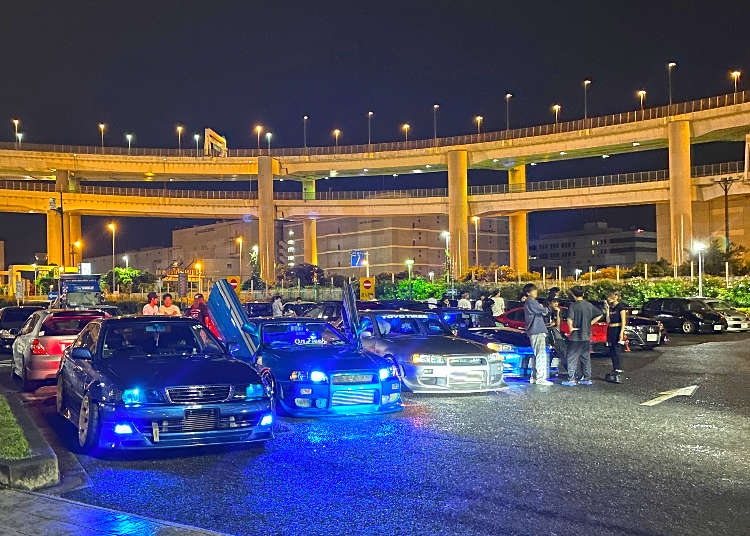
Car Culture in Japan: Inside the World's Most Exciting Automotive Scene
- Written by: Lucio Maurizi
Japan's car scene has been popularized by movies like The Fast and the Furious: Tokyo Drift and anime and manga like Initial D and MF Ghost. Nevertheless, no single piece of media can truly even scratch the surface of the car culture in Japan with all its sports, events, subcultures, hidden secrets, and JDM legends who walk amongst us.
(Main image photo by author)
The Rise and Evolution of Car Culture in Japan: The JDM Journey
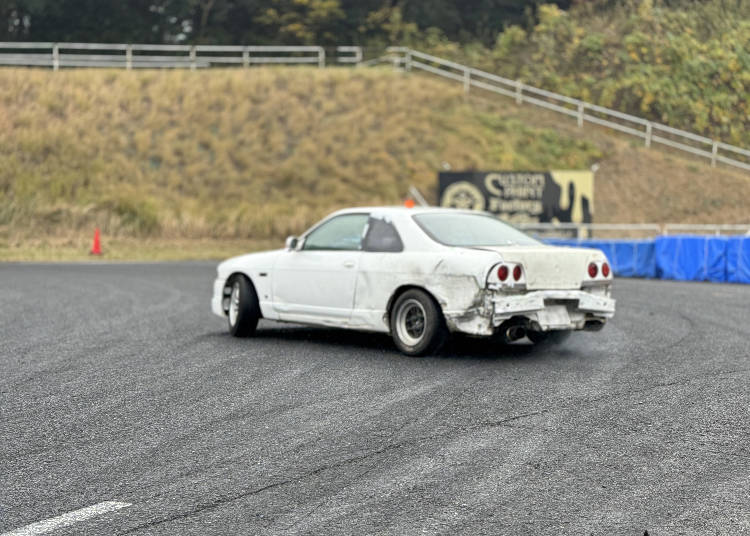
JDM stands for Japanese Domestic Market, and it envelops all vehicles made in Japan. However, in time, the term JDM has started evoking a particular kind of Japanese car.
The ones that one sees in movies and anime, like GTRs, Supras, RX7s, 180SXs, and Silvias. Of course, JDM is not limited to these models.
In fact, the JDM scene in Japan is exceptionally vast and colorful, which makes it so captivating to many people. It’s hard to establish when the Japanese car culture started, but it certainly revolved around JDMs for quite a while.
One could argue that it is spawned from street racers (counting also the legendary Midnight Club), touge drifters, and adrenaline chasers. However, as time went by, more and more quiet meets took place, and many of them started seeing foreign cars making an appearance; and this is what makes the Japanese car scene unrivaled.
People often associate the Japanese Car Scene with JDM exclusively, but what makes the culture in Japan so fascinating is that the passion for cars here extends to all vehicles.
Not only are there meets and groups explicitly dedicated to certain types of cars and models, but a proper car meet in Tokyo will have JDM icons parked next to Italian classics, American muscle, and European vintage, as well as racecars, wide-body modified vehicles, music trucks, and more.
The limit is only the owners’ imagination (and, well, some laws). This kind of variety surely comes from a deep-seated passion among car enthusiasts in Japan that transcends the origin of cars, but there is another reason.
Compared to many other countries and states, regulations regarding the modification of vehicles in Japan are more relaxed. This allows owners, companies, and enthusiasts to rework the body of their cars, make fascinating engine modifications, add exciting lights and sounds to their vehicles, and paint them or wrap them with unique designs and liveries.
Top Destinations for Car Enthusiasts: Unmissable Events & Activities

When we mentioned that it’s hard to cover what the car scene in Japan is fully, it’s because there are a lot of aspects to it that are equally as popular and active and which sometimes do not overlap. Let’s look at some examples.
Car Meets

The question car people in Japan are asked the most by people on the internet is: how do I find car meets (like in Tokyo Drift)?
Let’s clear this one up: with very few exceptions, asking how to find a car meet is like asking, “How do I find where a specific group of people likes to hang out and chat?”
Car meets are not events (well, sometimes they are, but we’ll talk about those later). Car meets are people calling each other to meet somewhere to hang out and spend time together, knowing that, despite being from all backgrounds, there’s one thing everyone has in common: the love for cars.
To participate, you are either very lucky and stumble upon one or know someone who tells you where to go and when (just like a friend would tell you what club they are going to or at what restaurant they are having dinner).
You could also follow certain social media pages that post when and where they will meet (because a meet is always more fun when there are more cars).
Daikoku PA
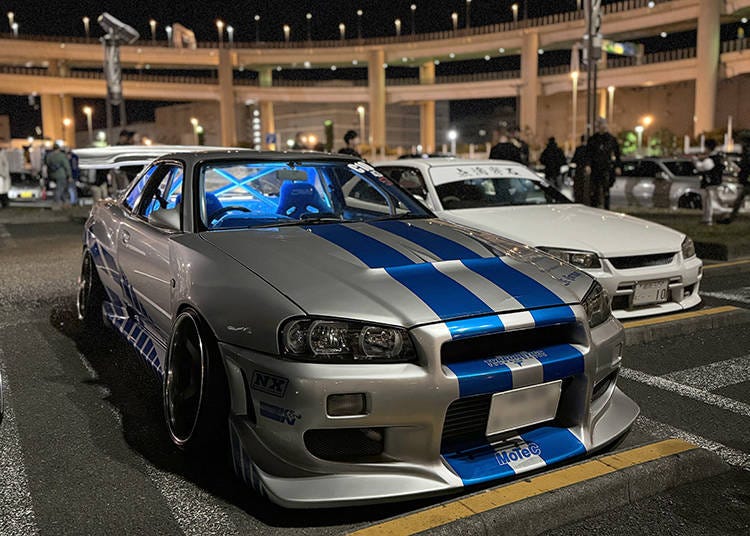
We mentioned some exceptions, and there is one above all: Daikoku PA. Daikoku is a highway parking area (PA) in Yokohama, just outside Tokyo’s boundaries. It is accessible exclusively by car.
What makes it an exception is that historically, it’s been where car enthusiasts meet almost every day. The Friday and Saturday night meets are the most popular, with hundreds of cars gathering in this large parking area, making it look like an incredible auto show. Sunday mornings are also very popular at Daikoku, when supercars and other rare cars tend to gather before lunch.
Recently, Daikoku has attracted even more attention, and not always for good reasons. So, let’s review some things to remember if you want to visit Daikoku PA:
- You can access it exclusively by car. If you can, rent a car and enjoy the drive and the experience.
- Do not ask for a lift to leave Daikoku PA. Not only can it be dangerous, but the police (there is a police station within the parking area) do not like people trying to hitch a ride.
- In the past weeks (as of the time of writing), cameras around Daikoku PA have caught people climbing over the fence from the street, trying to enter the parking area. Evidently, we need to stress this: Do not climb over the fence of Daikoku PA. This particular PA is designed to allow access exclusively to vehicles that have paid the tolls to access the highway. Unlike other parking and service areas allowing pedestrian access, Daikoku PA is only accessible with a vehicle.
- When you do drive to Daikoku, or any other meet, for that matter, make sure you park paying attention not to obstruct other vehicles, and keep noise to a minimum. We know, part of the fun is the noise, and a loud engine or muffler are perfectly acceptable, within limits. Don’t rev unnecessarily. You’ll attract the wrong kind of attention.
You may be telling yourself, “Well, I don’t have an international driver's license, but I still want to go.” The reality is that unless you join a tour or go with someone in the know, you can’t, which is perfectly fine. There is a lot to do in Tokyo and Yokohama outside of Daikoku.
By adhering to these manners, you can contribute to maintaining the positive atmosphere and goodwill at Daikoku PA. And the same guidelines apply to most meets and events. Follow them, and you’ll notice that you’ll be invited to more and more, and your experience among cars in Japan will be that more exciting.
-
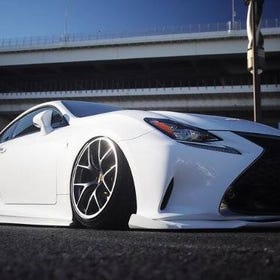 Details & Bookings ▶ Daikoku Days JDM and Japanese Car Culture Experience
Details & Bookings ▶ Daikoku Days JDM and Japanese Car Culture Experience
(Photo: Viator) -
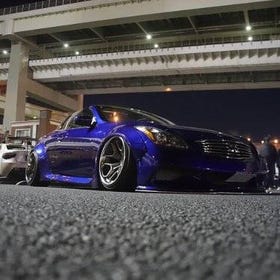 Details & Bookings ▶ Daikoku Nights JDM and Japanese Car Culture Experience Tour
Details & Bookings ▶ Daikoku Nights JDM and Japanese Car Culture Experience Tour
(Photo: Viator) -
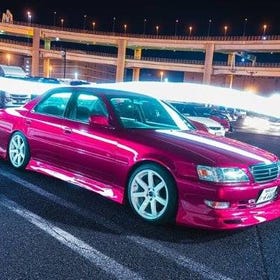 Details & Bookings ▶ DAIKOKU excursion by car DRIFT automobile encounter
Details & Bookings ▶ DAIKOKU excursion by car DRIFT automobile encounter
(Photo: Viator) -
 Details & Bookings ▶ Tokyo & Daikoku Liberty Walk GTR-35 Car Meet Tour
Details & Bookings ▶ Tokyo & Daikoku Liberty Walk GTR-35 Car Meet Tour
(Photo: Klook)
Special Discount(Nippon Rent-A-Car)
Get 10% off when you book via the special site. (Coupon code: iUzM2RfVlJ)
Car Events in Japan
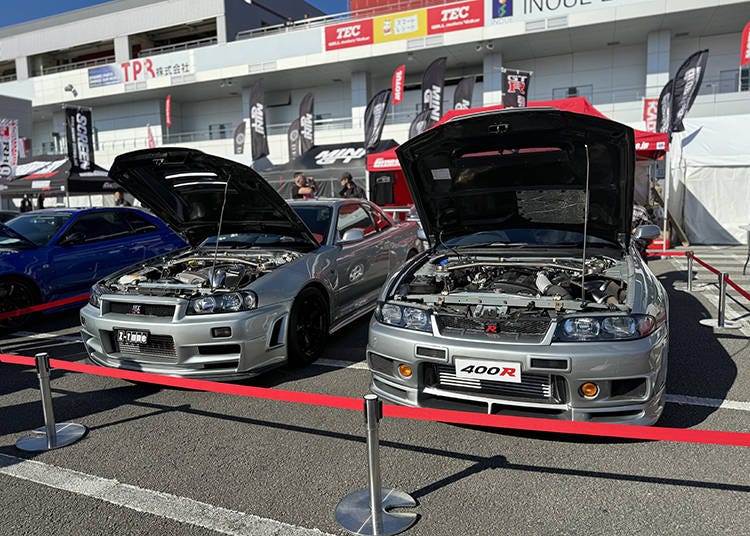
Events are of many different kinds, ranging from drifting events to car shows to organized public car meets. This is where you’ll get most of your fill when you visit Japan.
Many of these events are free, while others may require an entry fee. This is also where you’ll have a higher chance of finding cars built or modified by very popular Japan-based brands like Liberty Walk, RWB, Pandem, Rocket Bunny, and more.
Drifting and Touge
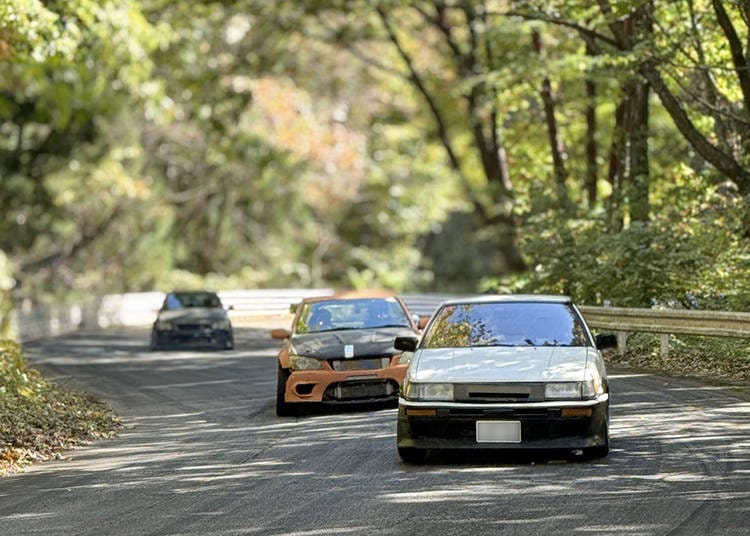
Ah, the Tokyo Drift dream so many of us have grown up with. Is it real? Does it happen like in the movies? Well, you’re not going to see an orange Veilside Fortune RX7 drift in the middle of Shibuya Crossing while people are walking through it (at least, hopefully you won’t), but you may see one driving around.
Nevertheless, people do enjoy touge drifting during the day and night. Touge (pronounced “toe-gé”) refers to the Japanese mountain roads that were the training ground for many drifting legends. For car enthusiasts, touge driving is as much of a Japanese cultural staple as Kimono or Kabuki performances.
Watching touge driving or drifting can be tricky, but some events focus on that, and if you’re in Japan while they happen (usually fall and summer), they are easy to find (albeit maybe a little hard to reach).
As far as drifting is concerned, street drifting does happen, but it’s very illegal and doesn’t belong to this article. However, you will be able to find drifting events on tracks or temporarily closed roads around Japan, as well as even in Tokyo, like at the D1 Grand Prix in Odaiba.
Rally
Rally in Japan is not as common as it is in other countries, but it’s just as exciting, and if you manage to be around during a rally event, you should definitely check it out.
Forum8 is probably the most popular rally event in Japan, and if you want to keep track of the dates of Forum8 and any other rally event in Japan, we recommend visiting
Rally-Japan
- La Festa Mille Miglia (Classic car rally held in early October)
- Coppa di Tokyo (Classic car rally held in late November; summer events held in Kyoto and Himeji)
Conventions
Japan is known for its unique car culture, with various events and conventions taking place throughout the year. The Tokyo Auto Salon and the Japan Mobility Show are two of the most popular conventions among car enthusiasts.
If you're looking for something more niche, mid-November is the perfect time to attend the Stancenation convention, which showcases cars with lowered suspensions and customized wheels. Early November features the Fenderist convention, which focuses on vintage and classic cars. Another great option is the Wekfest convention, which highlights performance-oriented builds and modifications.
With so many options to choose from, there's something for everyone in Japan's car culture.
- Tokyo Auto Salon (January 12-14, 2024)
- Wekfest (May 3, 2024)
- Japan Mobility Show (late October-early November)
- Fenderist (early November)
- Stancenation (mid-November)
Preservation and Promotion of Japan's Car Heritage
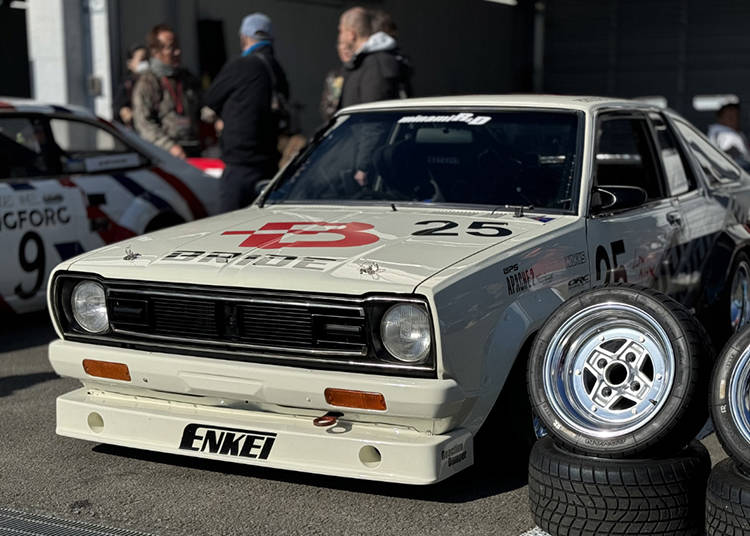
Japan has a rich car culture spanning several decades, and efforts to preserve and promote the country's car heritage are gaining momentum.
Classic Japanese cars hold a special place in the hearts of enthusiasts and collectors, and various organizations are working tirelessly to ensure their preservation.
Car museums and exhibitions play a crucial role in showcasing the history and significance of Japanese automobiles.
These institutions provide a platform for enthusiasts to come together, learn about the development of Japanese cars, and appreciate their unique features.
Visitors can explore vintage models, rare prototypes, and even iconic vehicles that have left a lasting impact on the automotive industry.
Below are some spots to add to your list of locations to visit.
- NISMO SHOWROOM (Yokohama/Tsurumi)
- Nissan Crossing (Tokyo/Ginza)
- Nissan Heritage Collection (Kanagawa Pref./Zama)
- Toyota Automobile Museum (Aichi Pref.)
- Honda Collection Hall (Tochigi Pref./Motegi)
- MAZDA Museum (Hiroshima)
- Subaru Visitor Center (Gunma Pref.)
Wrapping Up
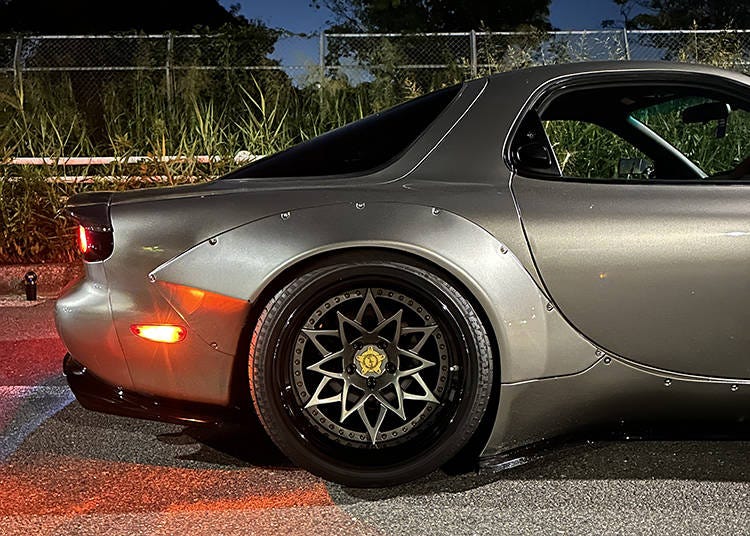
Japan’s car subculture is unique because it offers the highest chance to see rare cars in regular settings. This includes Japanese Domestic Market (JDM) vehicles and cars from around the world. The scene is incredibly diverse, but what makes it so great is the culture that surrounds it.
In Japan, the car community is inclusive of all enthusiasts, regardless of the type or condition of their vehicle. Supercars, project cars, Japanese or foreign, expensive or cheap, barely driven, or worn out from hundreds of hours on the track - everyone is welcome.
People in the community love to show off their cars, talk about them, see other people’s, and meet fellow enthusiasts. Whether you're an expert or simply a passionate person who likes looking at cars, you're welcome. So, enjoy taking pictures and videos of cars, asking questions, meeting people, and don’t worry about any potential language barrier. Japan offers the coolest car scene in the world.
Note: Photos appearing in this piece are used with permission.
- Please note the following official access restrictions to the Daikoku Parking Area (per Metropolitan Expressway Co., Ltd. website).
- Access to Daikoku PA is allowed only from the Wangan Line and Daikoku Line; entry or exit from general roads is not possible.
- Pedestrians, bicycles, and mopeds are not permitted to enter or exit Daikoku PA.
- The area around Daikoku PA is fenced, and gates are closed, making access by foot impossible.
- There are no taxi stands or bus stops within Daikoku PA, and it's not possible to leave by taxi.
- The closure of certain parking areas, including the Heiwajima, Tatsumi Daiichi, Higashi-Ohgishima, Shibaura, and Daikoku Parking Areas, is occasionally necessary. This is done in collaboration with the police to ensure public safety and reduce noise for local residents, particularly in response to dangerous and disruptive behavior by certain groups of drivers. Learn more about this at the Metropolitan Expressway Co., Ltd. website.
Lucio Maurizi is an automotive expert specializing in Japan's car scene and auto-tourism. With an MA in East Asian History from La Sapienza Università di Roma, he's a multi-talented contributor to travel platforms like LIVE JAPAN, Japan Travel, and GPlus Media. His Instagram account (50k+ followers) offers insider views on Japan's automotive culture. Lucio also actively collaborates with professional drivers and influencers and organizes can't-miss car events in Tokyo.
*Prices and options mentioned are subject to change.
*Unless stated otherwise, all prices include tax.
Popular Tours & Activitiess
Recommended places for you
-
Ad

[Tokyo, Ueno] Journey to the Sacred Grounds of the Tokugawa Shoguns: Join the "EDO SHOGUN’S LEGACY TRAIL TOUR" – Where Special Access, Modern Art, and Digital Innovation Converge
by: Guest Contributor
-

Make Your Japan Trip Unforgettable! Explore "OSHI MAP" – Now Free and Unlimited
by: Guest Contributor
-

These Tokyo Subway Stamps Are Free, Exclusive, and Weirdly Addictive
by: Guest Contributor
-

Only in Tokyo? A Legendary Manga Artist's New Masterpiece Is Hiding Underground
by: Guest Contributor
-

Jujutsu Kaisen Takes Over JR East With a Wrapped Shinkansen This Winter
by: Guest Contributor
-

New in Ginza! Air BicCamera Ginza Opens with a Faster, More Convenient Shopping Experience
by: Guest Contributor
Inspiration for Accommodations
-

Enjoy Mt. Fuji from the Comfort of Your Room! Recommended Ryokan with Mt. Fuji View
-

Stay Near the Cherry Blossoms! Hotels for Cherry Blossom Viewing in Tokyo
-

Family-Friendly Hotels with Free Shuttle to Disneyland: Convenient Access for a Magical Stay
-

Top Ranked Hakone Hotels with Mt. Fuji View: Enjoy Stunning Scenery from Your Private Space
-

Convenient Tokyo Hotels with Airport Shuttle: Ideal for Families and Heavy Luggage
-

Stunning Tokyo Tower View Hotels: Enjoy Spectacular Scenery from Your Private Space
-

Convenient Asakusa Hotels with Kitchens: Ideal for Extended Family Visits
-

Experience Luxury: Hakone's 10 Best Five-Star Accommodations
-

Enjoy Mt. Fuji Autumn Leaves! Top Hotels Near the Popular Autumn Leaves Corridor
-

Experience Hakone Fall Foliage from Your Room with Stunning Views
-

The Best of Japan: 11 Major Cities Every Traveler Should Visit
-

Authentic Food, Events & More at Tokyo's 2022 Philippine Festival (Dec 3-4)
-

The Architecture of Japanese Shrines and Temples
-

Tokyo Tsukiji|Tsukiji Area Map & Sightseeing Information
-

Essential Tokyo: The Complete Guide to Ikebukuro Station
-

(MOVIE) Survival Japanese: Phrases for When You Are Not Feeling Well
- #best ramen tokyo
- #what to buy in ameyoko
- #what to bring to japan
- #new years in tokyo
- #best izakaya shinjuku
- #things to do tokyo
- #japanese nail trends
- #what to do in odaiba
- #onsen tattoo friendly tokyo
- #daiso
- #best sushi ginza
- #japanese convenience store snacks
- #best yakiniku shibuya
- #japanese fashion culture
- #best japanese soft drinks



















